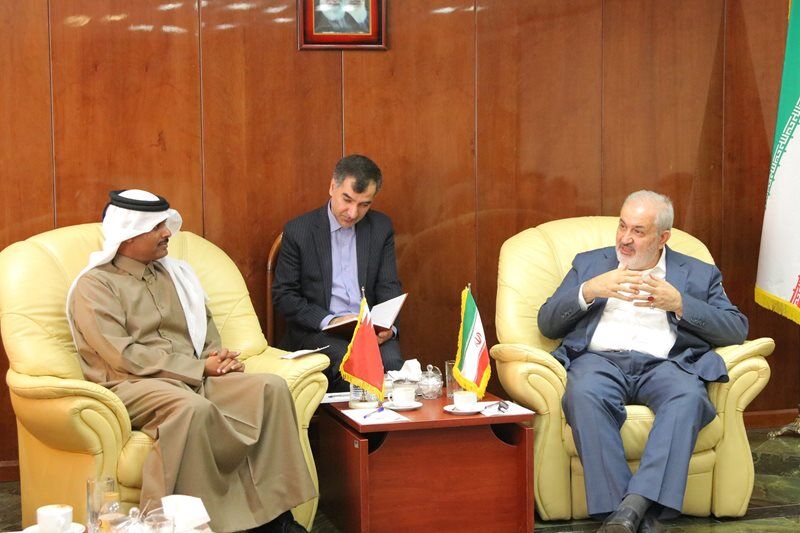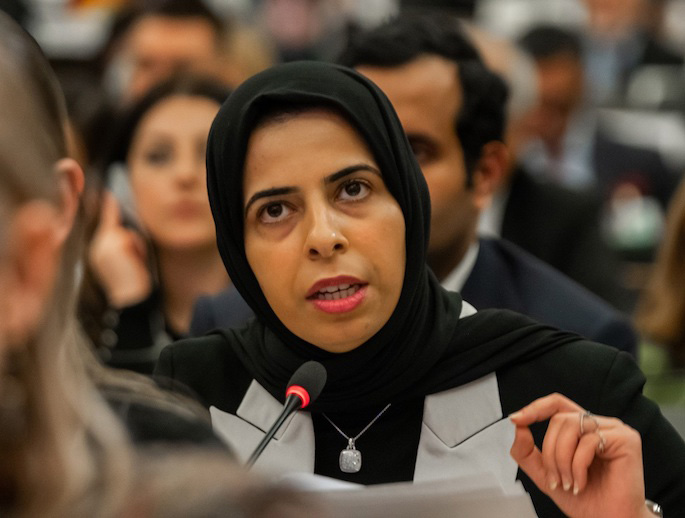Doha’s envoy outlined reasons why the court must provide an advisory opinion on the occupation of Palestine as well as “Israel’s long standing settler colonial project in Palestine.”
Qatar has condemned and questioned the constant application of double standards towards the Israeli occupation of Palestine on Friday at the International Court of Justice, stressing that the “international legal order is under threat.”
“There is a growing perception that international law applies to some, but not to others. That some people are seen as deserving of security, freedom and self-determination, but others are not. Some Children are deemed worthy of the law’s protection, but others are killed in thousands,” Mutlaq Al-Qahtani, Qatar’s Ambassador to the Netherlands, told The Hague.
Al-Qahtani presented Qatar’s argument at the court as part of the week-long hearings on the legal consequences of Israel’s occupation of the West Bank, East Jerusalem and Gaza.
The Qatari official started off his speech by expressing the Gulf state’s rejection towards the application of double standards towards Palestinians under the Israeli occupation.
While the current case is separate from the one South Africa had raised last year on the genocide in Gaza, Al-Qahtani brought it in his speech while detailing the consequences of the occupation of Palestine.
“Indeed Israel’s genocidal war on the people of Gaza has shown that the situation in Palestine is the most pressing threat to international peace and security[…]Israel has denied the Palestinians people’s right to solve determination. It has ethnically cleansed and colonised Palestinian lands,” Al-Qahtani said.
The Qatari official highlighted Israel’s “apartheid regime” with the aim “to maintain the domination of Jewish Israelis over Palestinians.”
“To maintain that regime, it has killed, maimed and imprisoned tens of thousands of men, women and Children. These are the root causes of the situation we face today,” he said, referring to the ongoing war in Gaza.
“The occupation must be brought to an end,” the Qatari official said.
The ICJ’s decision to move forward with the current proceedings came after the United Nations General Assembly adopted a resolution on December 30, 2022, seeking the court’s opinion on the legality of Israel’s occupation of Palestine.
Israel occupied the West Bank, Gaza, and East Jerusalem in a bloody war in 1967, widely known as “the Six-day War” and Naksa, or “setback”.
Within six days, Israel captured the majority of Palestine while forcibly displacing at least 300,000 Palestinians.
Qatar was among the majority of 98 countries that voted in favour of the UNGA resolution questioning the Israeli occupation of Palestine. A total of 24 other countries, including Israel’s main ally the U.S., had voted against the resolution, as 53 members abstained.
Doha, along with 14 other countries and blocs, had submitted their written comments to the World Court last November.
Long-standing settler colonial project
Speaking at the ICJ, Qatar’s envoy outlined reasons why the court must provide an advisory opinion on the occupation of Palestine as well as “Israel’s long-standing settler colonial project in Palestine.”
In detailing the reality in Palestine under occupation, Al-Qahtani listed the settlement expansions across occupied Palestinian territories, illegally seized from the native population.
“By 2023, over 700,000 settlers, or approximately 11 percent of Jewish Israelis, were living in the occupied Palestinian territories. The settlement activities are relentless,” he said.
While addressing the ongoing forced displacement of Palestinians, Al-Qahtani referred to Israel’s plans to displace Gaza’s 2.2 million population and establish illegal settlements in the area.
The Qatari envoy noted that Gaza was occupied before the beginning of the war on October 7, 2023, calling on the court to examine the situation “through the lens of the Genocide Convention.”
He also pointed to the dangerous escalations in the West Bank since the beginning of the war in Gaza, warning that the situation “is rapidly deteriorating” with nearly 400 Palestinians killed.
“Gaza had already been described by the UN secretary-general as hell on earth. Today it is indescribable. In the West Bank, Israel has for decades implemented a system of draconian checkpoints, subjecting millions of Palestinians to daily indignities,” he said.
The Qatari diplomat stressed that “civilian casualties are not just collateral damage in Israeli attacks” and they are “the main target,” while pointing to children being the main victims.
“Israel’s occupation has violated so many fundamental principles of international law that it would be hard to point to just one reason for its illegality,” he said.
While the ICJ’s rulings are binding, it does not hold power in passing them.
In 2004, the ICJ gave the UN an advisory opinion on “the legal consequences” of Israel’s illegal construction of the West Bank separation wall, under which the Zionist state annexed the Palestinian territory.
The ICJ had said it was “contrary to international law”.
Despite the ruling, Israel continued to act with impunity while constructing more checkpoints, illegal barriers, and expanding its settlements and separating Palestinian families.
“Israel’s occupation is illegal due to the fact that it is not of a temporary character not being carried out in good faith or not being administered in the best interests of the occupied population,” Qatar’s envoy said.







